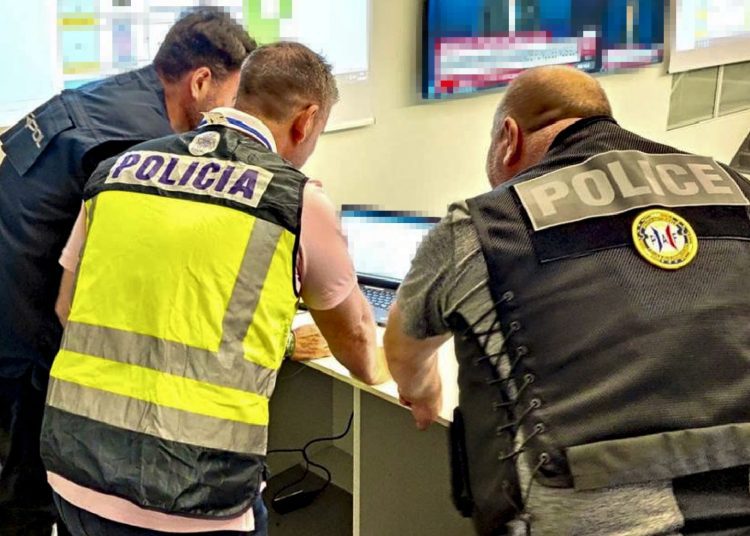An international criminal organization that allegedly illegally smuggled Cuban migrants was dismantled as part of a joint operation involving police from Spain, Serbia and Greece, with the collaboration of INTERPOL and EUROPOL.
During the deployed operation, 37 people were arrested, 21 of them in Spain, 8 in Serbia and 8 in Greece, according to a report by the Europapress news agency. Six of those people remain in pretrial detention.
https://twitter.com/policia/status/1683395734052192256?ref_src=twsrc%5Etfw%7Ctwcamp%5Etweetembed%7Ctwterm%5E1683395734052192256%7Ctwgr%5E2ff72878315ac3bc6f3f78578d102fd6dc461513%7Ctwcon%5Es1_&ref_url=https%3A%2F%2Foncubanews.1eye.us%2Fcuba%2Fdesarticulan-en-europa-red-que-traficaba-con-migrantes-cubanos%2F
The human smuggling network attracted people who traveled from the island to Serbia, a country that did not require a visa to enter its borders. The migrants had the objective of moving later to Greece, from where they finally continued by air to Spain.
The arrested traffickers used a well-known messaging application to promote their services, for which they charged each person up to 9,000 euros for the trip, transportation, and false documentation provided.
During the investigation, a group of 25 Cubans who were using false documentation to transit through Europe to their final destination were also detained.
The authorities explained that as a result of the operation, 18 assets, 33 personal properties and 144 bank accounts were blocked.
The publication points out that the investigation began after identifying numerous Cuban citizens with falsified documentation trying to cross the border to enter Europe.
Modus operandi
The report specifies that when the Cubans arrived in Serbia, a part of the organization arranged invitation letters to simulate their legal entry and provided them with accommodation near the border with North Macedonia.
Large groups began to move from the border to Greece, through various routes: some went from North Macedonia to Greece and from there to Spain; or from Serbia to Bosnia and Herzegovina-Croatia-Slovenia-Italy-Spain.
When they used the Croatia-Slovenia-Italy route, they allied with other criminal organizations that helped them cross. Sometimes they carried out the transfer in vehicles, but in most cases they did it on foot, walking for 13 hours in the dark, without food and in adverse conditions.
In addition, taking advantage of the vulnerability of migrants and that sometimes they were minors, there were scams, robberies, and they even transferred women to other criminal groups to be sexually exploited, the report added.
Up to 300 euros per ID
To enter the Schengen area through Greece, the criminal organization provided false documentation or authentic ID, which was recorded in police databases as stolen or lost, with a great physical resemblance to the migrant so that they could board a flight to Spain without being detected.
The migrants acquired these documents for 300 euros, and if they returned it to the organization once they crossed the border, they would be charged 170 euros. In this way, the same ID was used on several occasions to cross the border.
Agents of the Spanish National Police estimate that the organization has been able to traffic more than 5,000 Cuban citizens, which would mean a profit of about 45 million euros.
In the searches carried out in Spain, almost 97,000 euros have been seized, as well as the equivalent of another 100,000 euros in various foreign currencies of the United States, Serbia and Russia.
In the raid, 450 identity documents from various countries, three vehicles, 16 mobile phones, three laptops, numerous bank cards, storage devices and various documentation were also seized.
As a result of the operation, 18 assets, 33 personal properties and 144 bank accounts have been blocked. Six detainees remain in pretrial detention.










